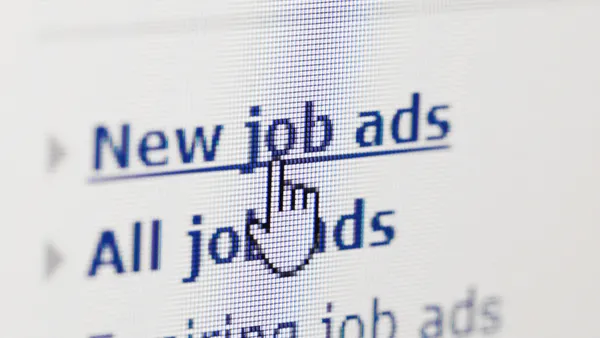A large majority of U.S. adults are concerned about the integration of artificial intelligence (AI) and automation tools into the workplace, according to an Aug. 17 report from the American Staffing Association.
About 74% believe AI and automation will lead to higher unemployment by taking jobs from humans. In addition, about 47% of those who are employed said automation could easily replace their job.
“Workers are trying to figure out what the rise of artificial intelligence means for their careers,” Richard Wahlquist, CEO of the American Staffing Association, said in a statement.
“Employers must take responsibility for helping their workforce navigate and evolve to meet rapid changes in the economy through training and upskilling,” he said. “Further, it’s imperative that organizations communicate with employees as new AI technology is deployed to set expectations and provide transparency.”
In a survey of more than 2,000 U.S. adults, including 1,225 who were employed, opinions varied by industry. For instance, 56% of those in the industrial sector felt automation could easily replace their jobs, followed by 51% in engineering, IT and scientific fields and 48% in office and administrative roles. About 44% of those in professional or managerial roles and 39% of those in health care felt the same.
The findings contrast with a 2017 survey from the American Staffing Association, which showed that 73% of workers didn’t think their work could be easily replaced by robots or AI.
In this year’s survey, workers remain split on how automation will ultimately affect their career in the future, with 27% saying it will help it and 26% saying it will disrupt it.
For now, workers may be focused on the near-term effects. Recent graduates, for instance, are concerned about their workforce preparedness and AI-related skills. Many workers may need to learn new skills in the coming years to keep up with emerging technologies, particularly for certain industries and entry-level jobs.
Employees may expect employers to provide this training, especially in cases where generative AI could lower business costs. Workers will need guidance on using trusted data sources, securing first-party data and getting the most value out of the AI tools relevant to their roles.
As employers invest in AI training, “human” skills remain in high demand as well, according to a recent TalentLMS report. Cognitive skills such as problem solving, creativity and originality are critical for organizational success and are being included in employee upskilling and reskilling programs.













